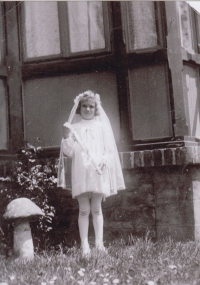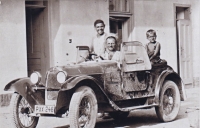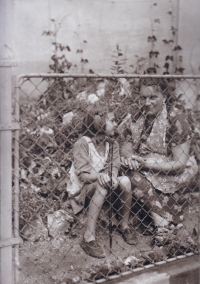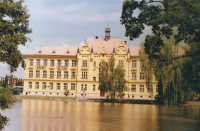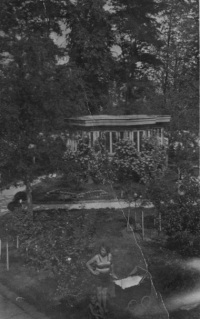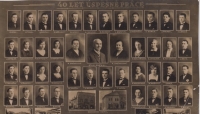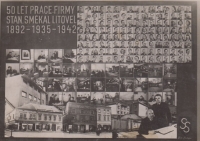After the war, jazz appeared and suddenly it was over and „ left foot ahead“
Download image
Borisa Kučerová, née Trávníčková, was born on 10 May 1933 in Litovel. During World War II, she experienced a Gestapo search of her home on suspicion of aiding Jews, and she watched the transports of Jews to Auschwitz passing through nearby Červenka. Her uncle, Karel Prášil, was executed by the Nazis for partisan activities, and one of her best friends, Alice Festová, was murdered at the age of nine in the Malý Trostinec extermination camp. At the end of the war, Wehrmacht soldiers repeatedly slept in their house. In May 1945, she witnessed the lynching of Germans in Litovel. After finishing her studies she worked as a nurse and laboratory technician in hospitals in Šumperk, [Klášterní] Hradisko in Olomouc, in Zábřeh (Ostrava) and Poruba. With her husband Metoděj Kučera they have three children. She has repeatedly experienced injustice at work because of her anti-regime attitudes. In 1983 she helped her youngest son Dušan to escape to the West just before his graduation from secondary school. Because of this, she went through countless interrogations by the State Security. After retiring in 1987, she moved to a cottage in the village of Bukovice in the foothills of Hrubý Jeseník, where she and her second husband Milan Němec were living at the time of recording, in 2022.
